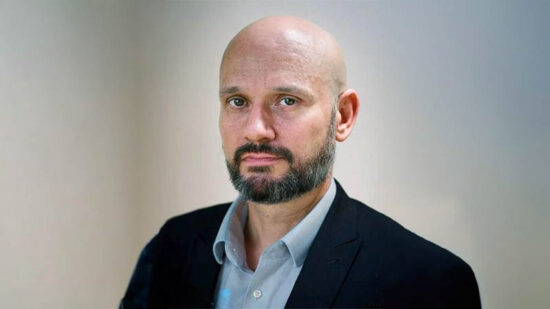One of the reasons why Phil Poole joined Deutsche Asset & Wealth Management as global head of research in January this year was the emphasis it puts on capturing alpha through tactical asset allocation plays.
Having been in research for 31 years, latterly as head of macro and investment strategy at HSBC Asset Management, this seasoned and highly analytical operator says all of the asset managers he has worked with in the past have tended to have a strategic asset allocation approach which does not change.
“Certainly it is not challenged as aggressively as it is here. I’m not suggesting it changes all the time, but the challenge process is quite intense.”
He has enjoyed the new experience though says it naturally takes time to get to grips with a new organisation, which in this case has a very structured process.
“There are some very, very capable people in the research group, principally in Europe with Frankfurt being the biggest part of the hub, but also in Asia and New York, where we’ve got quite a lot of research people.”
Poole is one of 12 voting members in wealth management who construct on a monthly basis what they call the ‘CIO view’ on asset allocation, and which is distinct from Deutsche Bank’s version of how they see the world.
Rational research
“There is a quarterly strategic process around which there are tactical meetings; weekly for fixed income and monthly for equities. It’s a pretty rigorous and, I’d say, highly structured process.
“The fixed income tactical meeting is almost two hours every Friday, so it’s very detailed. The strategic quarterly meeting lasts nine hours.”
It starts off with a process where the macro numbers are formulated, then economic forecasts are made across the principal economies and a view is taken on monetary policy in relation to the larger central banks.
That macro view feeds into preparatory meetings for fixed income, equities and alternatives, and all that comes together in the ‘CIO day’ for the long meeting.
Poole says this is “an attempt to rationalise this view across the asset classes and make it consistent”. This then feeds into the wealth management process via a multi-asset investment committee (which he sits on) and down into regional asset committees for Asia, the Americas, and Europe, which regionalise and populate the model portfolios that are developed.
Playing tactically
An example of a tactical change was in October, when the view was changed on sovereign bond buying from the European Central Bank. Poole says: “We took a view, on the back of the weaker data we’ve seen in the past couple of months, that there had to be sovereign bond buying.”
Quite a lot of short-term tactical calls are also made on currencies, as he further explains.
“We can have a broader view of dollar strength but, for whatever reason, we might decide the euro is going to bounce back in the next couple of weeks. So we might take tactical positions around that.”
One view around the end of the second quarter was that the yen would weaken against the dollar, which it duly did, though “probably moved too far, too fast”.
As for equities, he moved from a quite bullish, overweight position in European equities coming into 2014, which was still in place at the March strategic meeting, to a neutral stance ahead of the July meeting.
This is another example of a number of the calls that are made between the big quarterly meetings, which he says is a notably more active approach than he has experienced elsewhere in his career.
Translating all these views into a balanced model portfolio (see chart), which Deutsche AWM labels its dollar-based ‘advisory allocation’, the equities position is overweight relative to its in-house anchor benchmark (47%), underweight in fixed income (42%), in line with alternatives (10%), and below target for commodities (1%).
Within alternatives, the portfolio is underweight in infrastructure and liquid hedge funds, and overweight in real estate and private equity.
Within the equity allocation, an overweight position is held in the US, Japan and Asia, but underweight in Latin America and EMEA.
Growing pains
“The IMF has basically moved its view of global growth into line with pretty much where we were so the question is, for us, ‘Are we still comfortable with our growth forecasts?’”
The IMF significantly reduced its Japanese growth forecast, for example, but Deutsche AWM was at the conservative end of those growth assumptions. “The question is, do we become more conservative than we’ve been?”, he says.
“The view that we take on Europe, is that it’s still a somewhat differentiated story. There’s no doubt that Italy, back in recession, is weak and that France is struggling as well. There’s no economic reform coming through. The Italians are talking a better story than the French, but they’re not really delivering. We need to see additional evidence to support long-term growth prospects in the eurozone.”
On the periphery, Spain, Portugal and Ireland, for example, are doing a lot better, though are still work in progress he adds.
“It’s not a global story of weakness. The concern we’ve seen playing out in the market is that the weakness in Europe drags the US down. Now, we think the US story, generally, is a good one. Domestic demand is strong. We don’t see the Fed being forced to raise rates any time soon.”
In the UK, he does not expect the Bank of England to raise rates until the end of the first quarter, and believes it will be the first central bank to do so in this hiking cycle, followed by the Federal Reserve.
Poole is accepting “this is going to be a longer, very gradual path to normalisation, and that normalisation probably means a lower level of peak rates than we had in pre-crisis cycles”.
In terms of a one-year outlook he still likes peripheral European debt even though the spreads have tightened dramatically.
“That’s on a view there will be supportive action from the ECB, which was a kind of QE fantasy previously that is now going to be more of a reality. We think that’s supportive of peripheral debt. It’s more of a technical argument than anything else.
“Clearly, the relatively weak growth performance and the very low levels of inflation are also supportive of fixed income markets in Europe.”
From an equity point of view, while Deutsche AWM is still overweight in equities, relative to fixed income, the inclination in this type of environment is to favour the US with its underlying economic story.
“It’s more favourable, even though the valuations are more stretched. We just don’t think that now is the time to dive back in. There’s quite a lot of negative momentum in the market, and we’re more inclined to think that it will be a buying opportunity, but probably not just yet.”
At the moment, he says, Deutsche AWM is overweight cash, relative to its target within multi-asset portfolios.
Geo-political risk
From a tactical perspective, just how flexible is he in adjusting the portfolios to degrees of geo-political risk?
“We discuss this intensively on a weekly basis and sometimes between those meetings. We think the risk in Ukraine is less than we perceived it to be three months ago because we believe the Russians have largely achieved what they wanted.”
In the Middle East, despite all of the headlines and conflicts, there is no impact on the oil price, he says.
“In fact, the oil prices continued to fall. There are two reasons for this. One is that the dynamics of the oil market have changed because of developments in the US. The shale revolution has really changed the way we need to think about the impact, at the margin, on the oil price from the Middle East. There also hasn’t been any impact on oil supplies.”
In terms of Ebola, he says it is “very, very difficult to be clear on that.
“Our expectation would be that there will be additional cases and it’s something we need to watch. We’ve tried to look back at SARS and other epidemics and how it impacts markets, and we’re trying to locate an expert to get some more advice on this, who can help us understand that risk. In the meantime, we are following particularly what the UN is saying.”
In all the market noise at different points in the market cycle, pundits can make everything sometimes appear to go bad, or good, at the same time, he points out.
“Of course the world’s not like that, really. So, you know, these things are there in the background and there’s no doubt there’s an overhang and this particular sell-off is more about growth concerns. It does bring in these other concerns at the same time.” l








